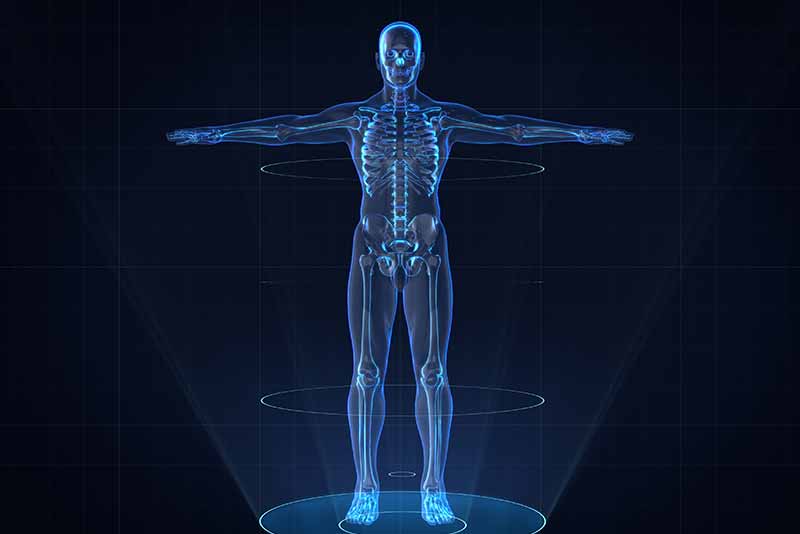Methamphetamine, commonly known as meth, is a potent and highly addictive stimulant that affects the central nervous system. If you or someone you know has used meth and needs to cleanse the body quickly, there are a few crucial things to understand. The body metabolizes meth in its own time, and there is no instant fix. However, with the right knowledge, you can support the body’s natural detoxification process, promote faster elimination, and avoid potential health risks.
Understanding Meth Detox
Methamphetamine detox is a process that allows the body to rid itself of the harmful substances left behind after meth use. Meth has a profound impact on the brain, and its withdrawal can be uncomfortable and challenging. Unfortunately, no single method will completely remove meth from the body immediately. However, there are ways to promote faster detoxification naturally and safely, reducing the time meth stays in the body and supporting your overall health.
The Science Behind Meth Elimination
Methamphetamine has a half-life of around 10 to 12 hours, meaning that half of the drug is cleared from the bloodstream within this period. However, meth and its metabolites can remain detectable in urine, blood, saliva, and hair for varying periods, depending on factors like dosage, frequency of use, and individual metabolism. The body eliminates meth primarily through the kidneys, and hydration plays a critical role in speeding up the detoxification process.
How Long Does Meth Stay in the System?
Meth can stay in your system for several days to weeks, depending on the type of drug test being used. Urine tests, the most common form of drug screening, can detect meth for up to 3-7 days after last use. Blood tests can detect meth for 1-3 days, while it can be found in hair follicles for up to 90 days. If you are looking to pass a drug test quickly, you need to understand the timeline of meth in your system and how your body metabolizes it.
Factors That Influence Meth Clearance Time
There are many factors that can influence how quickly meth leaves your system, such as:
- Frequency of use: Chronic users will take longer to detox compared to those who use meth occasionally.
- Dosage: Higher doses of meth will take longer for the body to clear.
- Metabolism: People with faster metabolisms may detox from meth more quickly.
- Hydration levels: Staying hydrated can help flush out toxins.
- Age: Older individuals typically have slower metabolisms, which can extend detox times.
These factors combined determine how fast meth is cleared from the body.
Can You Flush Meth Out of Your System Quickly?
While there is no magic solution to flush meth out instantly, you can support your body’s natural detoxification process by staying hydrated, maintaining a balanced diet, and exercising regularly. Detoxification is a gradual process, but taking certain steps can help your body eliminate meth more efficiently. It is important to be cautious of “quick fix” products or methods, as they are often ineffective or harmful.
Hydration: The Key to Detoxifying from Meth
One of the most effective ways to expedite meth detox is to drink plenty of water. Meth is excreted primarily through urine, so staying hydrated helps increase urine output, which aids in flushing meth from the body. Consuming at least 8-10 glasses of water daily can help your kidneys work more efficiently. Avoid sugary or caffeinated drinks as they can lead to dehydration, counteracting your efforts to cleanse your system.
Nutritional Support for Meth Detox
A balanced diet rich in vitamins, minerals, and antioxidants can promote overall health and aid in the detoxification process. Foods high in fiber, such as leafy greens, fruits, and whole grains, can help cleanse the digestive system, while proteins can support tissue repair and brain function. Vitamin C-rich foods, like oranges and bell peppers, act as natural detoxifiers by boosting your immune system.
Incorporating detoxifying herbs like cilantro, turmeric, and dandelion root can also support the liver and kidneys, which are crucial organs in the detox process.
The Role of Exercise in Accelerating Meth Elimination
Regular physical activity can stimulate circulation and promote sweating, which is another way the body excretes meth. Aerobic exercises like running, cycling, or swimming increase the heart rate and help speed up the metabolism, which can enhance the body’s ability to process and eliminate meth. Exercise also helps reduce stress and improve mental well-being, which can be crucial when detoxing from meth.
However, overexertion can be dangerous, especially during meth withdrawal, so it’s essential to listen to your body and not push yourself too hard.
Natural Detox Methods to Cleanse Meth from Your Body
Using natural detox methods can support the body in its effort to eliminate meth. These methods include:
- Drinking herbal teas: Dandelion root tea, green tea, and milk thistle can support liver function and encourage detoxification.
- Taking detox baths: Epsom salt baths can help draw toxins out of the body through the skin.
- Consuming probiotics: These beneficial bacteria can help restore gut health and improve digestion after meth use, aiding in detoxification.
By using these gentle, natural methods, you can support your body’s efforts to eliminate meth without the need for harsh chemicals or quick-fix solutions.
The Importance of Sleep During Meth Detox
Sleep is a critical component of the detoxification process, as it allows the body to heal and repair itself. Meth use often disrupts sleep patterns, leading to insomnia or erratic sleep behavior. During detox, it is essential to establish a regular sleep routine and aim for 7-9 hours of sleep per night. A well-rested body is more efficient at processing and eliminating toxins, including meth.
The Dangers of Quick Detox Solutions: What to Avoid
Many products claim to help you “flush meth out of your system” quickly, but they often come with risks. Extreme detox regimens, harsh chemicals, or unregulated supplements can harm your health and cause more harm than good. It’s important to be wary of detox products that promise instant results, as they are typically ineffective and may even be dangerous.
Meth Detox and Drug Testing: What You Need to Know
If you’re concerned about passing a drug test, understanding the testing process is key. Meth is detectable in different parts of the body for varying lengths of time, so the type of test being used will influence your detox strategy. For example, urine tests can detect meth for up to a week, while hair follicle tests may detect meth for several months. Detoxing from meth in time for a test requires a combination of hydration, diet, and possibly detoxification aids, depending on how soon the test is.
How to Get Meth Out of Your System for a Drug Test
If you have an upcoming drug test and need to get meth out of your system fast, there are a few steps you can take:
- Increase your water intake to flush meth from your kidneys.
- Exercise regularly to boost your metabolism and encourage sweating.
- Eat a clean, balanced diet to support detoxification.
- Use natural detoxifying agents like herbal teas and probiotics.
However, the effectiveness of these methods will depend on your body’s metabolism and how long meth has been in your system.
Medications That May Help With Meth Detox
In some cases, medications may be prescribed to help manage the symptoms of meth withdrawal and support detoxification. These medications do not directly eliminate meth from the system but can help alleviate cravings, anxiety, and insomnia, making the detox process more manageable. Consult with a healthcare professional if you are considering using medication as part of your meth detox plan.
Why You Should Seek Professional Help for Meth Detox
Meth detox can be physically and mentally challenging, especially for chronic users. In some cases, professional treatment at a detox or rehabilitation center may be necessary. Medical supervision can ensure a safer detox process, and healthcare providers can offer support with withdrawal symptoms, cravings, and mental health concerns. Seeking professional help significantly increases the chances of long-term recovery.
Over-the-Counter Remedies for Meth Detox: Do They Work?
Some over-the-counter detox products claim to help cleanse the body of meth, but their effectiveness is often questionable. While certain vitamins, supplements, and herbal remedies may support overall health and detoxification, they are not a guaranteed method for passing a drug test or speeding up meth elimination. Always approach over-the-counter detox remedies with caution and consult a healthcare professional if in doubt.
Can Detox Drinks Remove Meth from the Body?
Detox drinks are often marketed as a solution to pass drug tests, but their effectiveness is limited. These drinks typically contain ingredients that temporarily dilute the urine or mask the presence of meth in drug tests. While they may help some people pass a test in the short term, they do not remove meth from the body and are not a long-term solution for detoxification.
Myths About Meth Detox: What’s True and What’s Not
There are many myths surrounding meth detox, from drinking excessive amounts of water to using strange home remedies like vinegar or baking soda. These methods are not only ineffective but can also be dangerous. The most effective way to detox from meth is to support your body’s natural elimination processes with hydration, proper nutrition, and exercise.
Importance of a Support System During Meth Detox
Detoxing from meth can be an overwhelming process, both physically and mentally. Having a support system in place is essential for long-term success. Whether it’s friends, family, or a professional support group, surrounding yourself with people who encourage you and hold you accountable can make the detox process more bearable and reduce the risk of relapse.
Psychological Withdrawal Symptoms of Meth and Coping Mechanisms
Meth withdrawal can come with significant psychological symptoms, including depression, anxiety, irritability, and intense cravings. Coping with these symptoms requires patience and the use of healthy coping mechanisms such as mindfulness meditation, therapy, and staying physically active. Engaging in activities that bring you joy and relaxation can help manage the emotional challenges of detox.
Long-Term Strategies to Stay Meth-Free After Detox
Once meth is out of your system, staying clean requires commitment and long-term strategies. Establishing new routines, focusing on health, and seeking ongoing therapy or counseling can help prevent relapse. It’s important to continue making positive lifestyle choices, such as regular exercise, eating a balanced diet, and building a strong support network to maintain sobriety.
Understanding Meth Cravings and Relapse Prevention
Cravings for meth can persist long after the drug has left your system, and understanding how to manage these cravings is essential for avoiding relapse. Strategies like engaging in hobbies, practicing mindfulness, and staying connected with support groups can help you resist the urge to use meth again. Relapse prevention planning is a key part of long-term recovery and involves identifying triggers and creating a plan to avoid or cope with them.
FAQs on Meth Detox and Drug Testing
1. How long does it take to detox from meth completely?
Ans – It can take several days to weeks for meth to leave your system, depending on various factors like dosage and frequency of use. Full recovery from meth addiction may take much longer.
2. Can drinking water flush meth out of your system?
Ans – While staying hydrated can help your body flush out meth, it is not a quick fix, and meth will still take time to leave your system naturally.
3. What is the best detox method for meth?
Ans – The best detox method is a combination of hydration, nutrition, exercise, and rest, along with professional support if needed. Avoid “quick fix” products that promise instant results.
4. Will detox drinks help pass a meth drug test?
Ans – Detox drinks may help dilute your urine for a short time, but they do not remove meth from your body and are not a reliable solution for passing drug tests.
5. How long can meth be detected in a hair test?
Ans – Meth can be detected in hair follicles for up to 90 days after last use, making it one of the longest-lasting detection methods.
6. What are the symptoms of meth withdrawal?
Ans – Meth withdrawal symptoms can include fatigue, depression, anxiety, irritability, increased appetite, and intense drug cravings.
Conclusion: Staying Healthy and Meth-Free
Detoxing from meth is a challenging process, but with the right strategies and support, it is possible to cleanse your system and regain control of your life. Hydration, proper nutrition, exercise, and sleep are essential for supporting your body during detox.
Avoid quick-fix solutions and focus on long-term health and recovery. Seeking professional help and maintaining a strong support system will increase your chances of successfully staying meth-free.



